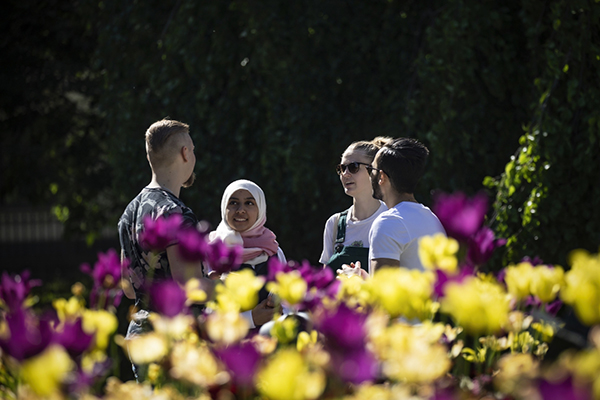During the period 2021–2027, the emphasis will be on social inclusion, digitalisation, sustainability and active citizenship. The programme will also reinforce young people’s skills and provide improved opportunities to participate in and influence the future development of society. Furthermore, the programme will strengthen Europe’s competitiveness in general and contribute to recovery from the effects of the coronavirus pandemic.
In a recent press release, Minister for Education Anna Ekström emphasised the role of the Erasmus program and exchanges with other European countries in improving Sweden’s level of knowledge and education system as a whole, which in turn makes it possible to realise the SDGs, strengthen democracy and contribute to a sustainable internationalisation of education.
Intensifying collaboration and facilitating inclusion
While the major innovation in the new Erasmus+ is that primary, secondary and upper-secondary schools will have increased opportunities to finance student exchanges, the investment will also benefit exchanges in the higher education sector, where larger budgets and additional forms of mobility will provide more opportunities to increase the number of outgoing students and staff.
“The issue of increased social inclusion is central to the new Erasmus programme. Among other things, funds will continue to be made available to cover additional costs for students with disabilities and other underrepresented groups. Mixed mobility, consisting of a briefer physical mobility combined with a virtual element, is also expected to facilitate the inclusion of more students in the Erasmus programme,” says Uppsala University’s Institutional Erasmus Coordinator, Sara Laginder of the Division for Internationalisation.
There are also opportunities to use mixed mobility within existing collaborations, such as ENLIGHT or other strategic networks that are already arranging or planning joint courses.
“This offers new possibilities to continue and intensify collaboration globally, including with the United Kingdom, through the new international element of the intra-European Erasmus programme. The new programme also means that teaching collaborations and student exchanges for shorter periods may become a reality.”
Green travel and digitalisation
The new programme will also allow students and staff to obtain additional funding for green (i.e. sustainable), environmentally friendly travel.
“Uppsala University has been funding green travel for the past two years, but this will now become part of the new Erasmus programme. Digitalisation is also high on the European Commission’s agenda, both within the Erasmus programme and in the education sector as a whole. Digitalisation will simplify matters for those who participate in exchanges and streamline processes for those working with the programme, ensuring that resources can be deployed where most needed.”
After the initial phase of implementing digital solutions, it is hoped that time and resources can be freed up so that more work can be done on realising the programme’s soft values.
“We can then strive to ensure inclusion and that Erasmus mobility becomes an alternative for all students regardless of their socioeconomic background.”
